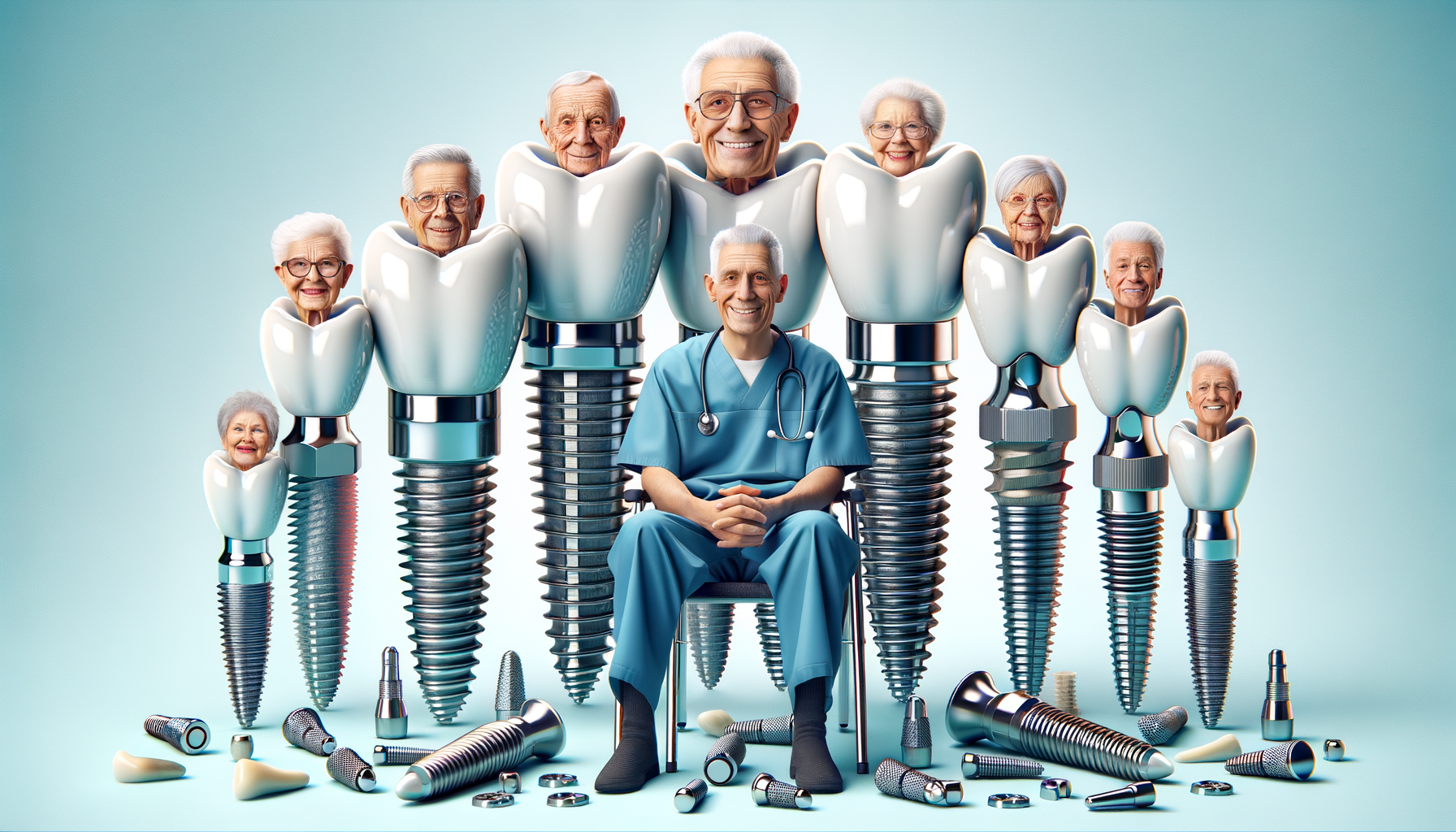Understanding Dental Implants: A Comprehensive Overview
Dental implants have revolutionized the field of dentistry, offering a durable and aesthetically pleasing solution for tooth loss. For seniors, this innovation is particularly significant as it addresses both the cosmetic and functional challenges associated with aging teeth. Essentially, dental implants are artificial tooth roots, typically made from titanium, that are surgically positioned into the jawbone beneath the gums. Once in place, they allow dentists to mount replacement teeth or bridges onto them.
The process of getting dental implants involves several stages, including a thorough evaluation, surgical placement, and post-operative care. The evaluation phase is crucial, as it determines the patient’s suitability for implants. Factors such as bone density, oral health, and overall medical condition are assessed. The surgical placement is a meticulous procedure, requiring precision to ensure the implant integrates well with the bone, a process known as osseointegration.
For seniors, the benefits of dental implants extend beyond mere aesthetics. They offer improved speech, enhanced comfort, and the ability to eat a wider variety of foods, which can contribute to better nutrition and overall health. Unlike dentures, implants do not slip or cause discomfort, making them a preferred choice for many elderly patients.
The Benefits of Dental Implants for Seniors
As we age, maintaining oral health becomes increasingly important, not just for aesthetics but for overall well-being. Dental implants offer seniors a reliable solution to tooth loss, which can significantly impact quality of life. One of the primary advantages of dental implants is their ability to mimic natural teeth in appearance and function.
Seniors often experience bone loss in the jaw, a condition exacerbated by missing teeth. Dental implants help mitigate this issue by stimulating the jawbone, preventing further deterioration. This is a crucial benefit, as bone loss can lead to changes in facial structure, affecting both appearance and oral function.
Additionally, dental implants provide a secure fit, eliminating the discomfort and inconvenience associated with traditional dentures. This secure fit enhances the ability to chew and speak confidently, reducing the risk of embarrassment in social situations. Furthermore, implants are designed to last for many years, offering a long-term solution that can reduce the need for frequent dental visits and adjustments.
- Improved oral health and hygiene
- Enhanced self-esteem and confidence
- Long-lasting and durable solution
Challenges and Considerations for Elderly Patients
While dental implants offer numerous benefits, there are challenges and considerations that seniors must take into account. The process of obtaining dental implants requires a commitment to oral hygiene and regular dental check-ups to ensure their longevity. For some elderly patients, this may pose a challenge due to mobility issues or other health-related constraints.
Another consideration is the cost of dental implants, which can be significant. While they offer a long-term solution, the initial investment can be a barrier for some seniors. However, it is important to weigh this against the ongoing costs of alternative solutions like dentures or bridges, which may require more frequent replacements and adjustments.
Health factors also play a crucial role in determining the suitability of dental implants for elderly patients. Conditions such as diabetes, osteoporosis, or a weakened immune system can impact the healing process and overall success of the implants. A thorough evaluation by a dental professional is essential to assess these risks and develop a personalized treatment plan.
Comparing Dental Implants with Other Tooth Replacement Options
When it comes to tooth replacement options for seniors, dental implants are often compared to dentures and bridges. Each option has its own set of advantages and limitations, making it essential for patients to consider their specific needs and circumstances.
Dentures are a more traditional option, offering a removable solution for missing teeth. They are typically less expensive upfront but may require frequent adjustments and replacements. Dentures can also pose challenges with fit and comfort, particularly for seniors, as they may slip or cause irritation.
Bridges, on the other hand, involve placing crowns on adjacent teeth to support the replacement tooth. While they offer a more permanent solution than dentures, they rely on the health of the surrounding teeth and may not be suitable for all patients. Additionally, bridges do not address the issue of bone loss in the jaw, which dental implants effectively combat.
- Dental Implants: Permanent, prevent bone loss, natural appearance
- Dentures: Removable, cost-effective, may slip
- Bridges: Fixed, relies on adjacent teeth, does not prevent bone loss
Conclusion: Making an Informed Decision
Deciding on the right tooth replacement option is a significant decision for seniors, impacting their quality of life and overall health. Dental implants offer a multitude of benefits, from improved oral function to enhanced confidence, making them a highly regarded choice among elderly patients. However, it is crucial to consider individual health factors, financial implications, and personal preferences when making this decision.
Consulting with a dental professional who understands the unique needs of seniors is essential in navigating the options available. By weighing the benefits and challenges of dental implants against other alternatives, seniors can make an informed choice that best suits their lifestyle and health needs.
Ultimately, the goal is to restore not just a smile, but the ability to enjoy life to its fullest, with confidence and comfort.




Leave a Reply